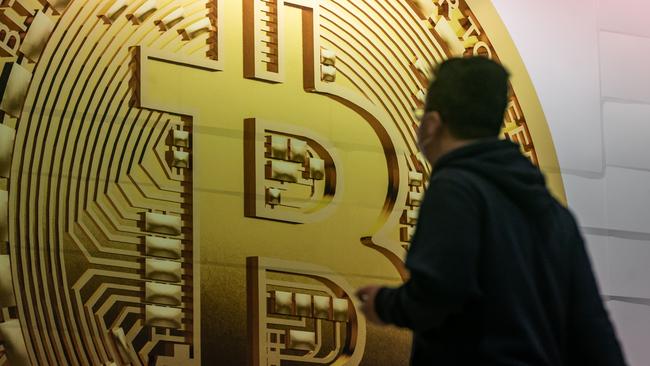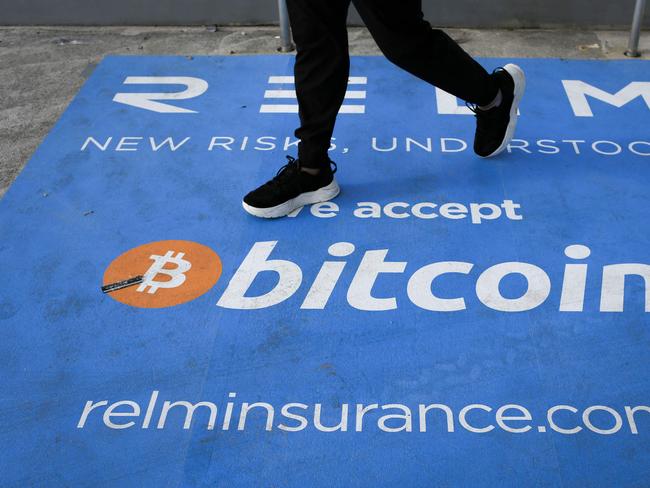Bitcoin booms as Russia-Ukraine conflict rages
Bitcoin has overtaken Russia’s ruble in terms of total value for the first time, with many investors treating the crypto asset as a safe ‘digital gold’.

Business
Don't miss out on the headlines from Business. Followed categories will be added to My News.
The ongoing Russia-Ukraine conflict and the Ukrainian government’s crackdown on money transfers has led to a boom for cryptocurrencies including bitcoin, which surged 14 per cent on Tuesday and overtook Russia’s rouble in terms of total value.
As investors increasingly bail out of Russian assets in the wake of global financial sanctions, crypto assets are being viewed as ‘‘digital gold’’, and a legitimate asset despite heightened price volatility in recent weeks.
Crypto assets came under pressure when the Russia-Ukraine tensions started but fears are now easing and bitcoin’s price is rallying as a result, according to eToro analyst Josh Gilbert. It climbed 13.96 per cent on Tuesday to $59,500.
“The political instability will once again highlight bitcoin’s main goal of being a transparent, open-source, peer-to-peer network not controlled by a single administrator or central bank. This means that even if banks are closed and local currencies fall in value during times of instability, citizens will still have access to capital through crypto,” Mr Gilbert said.
“We’re seeing citizens in need get access to capital quickly through crypto, which is helping to serve as a foundation for further legitimacy of the asset on a global scale. It’s interesting to see citizens starting to realise the power of crypto assets like never before. They are essentially seeing the real-life use-cases of crypto and not just as an investment asset.”
For investors viewing crypto assets as a long-term investment, the short-term blips and changes in valuation didn’t affect its long term goal of changing the financial industry and essentially being the future of payments, Mr Gilbert said.
Mark Basa, global brand and business manager at $800m crypto company HOKK Finance, said countries involved directly in conflicts were likely to more readily adopt crypto technology for their financial systems.
“It‘s either going to be introduced by a government or forced by the people,” Mr Basa said. Because of the decentralised nature of cryptocurrencies, intermediaries such as the centralised banks had no control over them.
“You simply can’t control cryptocurrency in the same way you can with fiat,” he said.

There could be manipulation where large ‘‘whales’’ could pump and dump the price, Mr Basa said, especially if they have access to media outlets which could fuel a bull or bear market.
“We see this happen all the time with bitcoin and China, which bans the currency only to accumulate it at a discount rate after retail investors have dumped their bags,” he said.
Ukrainian Vice Prime Minister Mykhailo Fedorov has asked major bitcoin exchanges to block the addresses of Russian users, though exchanges including Binance and Kraken have said they will not comply with the request, arguing that such a tactic would be counter to the crypto community’s libertarian ideology.
Local data out of Ukraine meanwhile shows domestic buyers are turning to Tether’s USDT stablecoin, which is a cryptocurrency pegged to the US dollar.
Tether is the most popular stablecoin globally.
Its price has remained relatively stable over recent weeks, compared with the higher-profile crypto assets like bitcoin or ethereum.
Originally published as Bitcoin booms as Russia-Ukraine conflict rages



